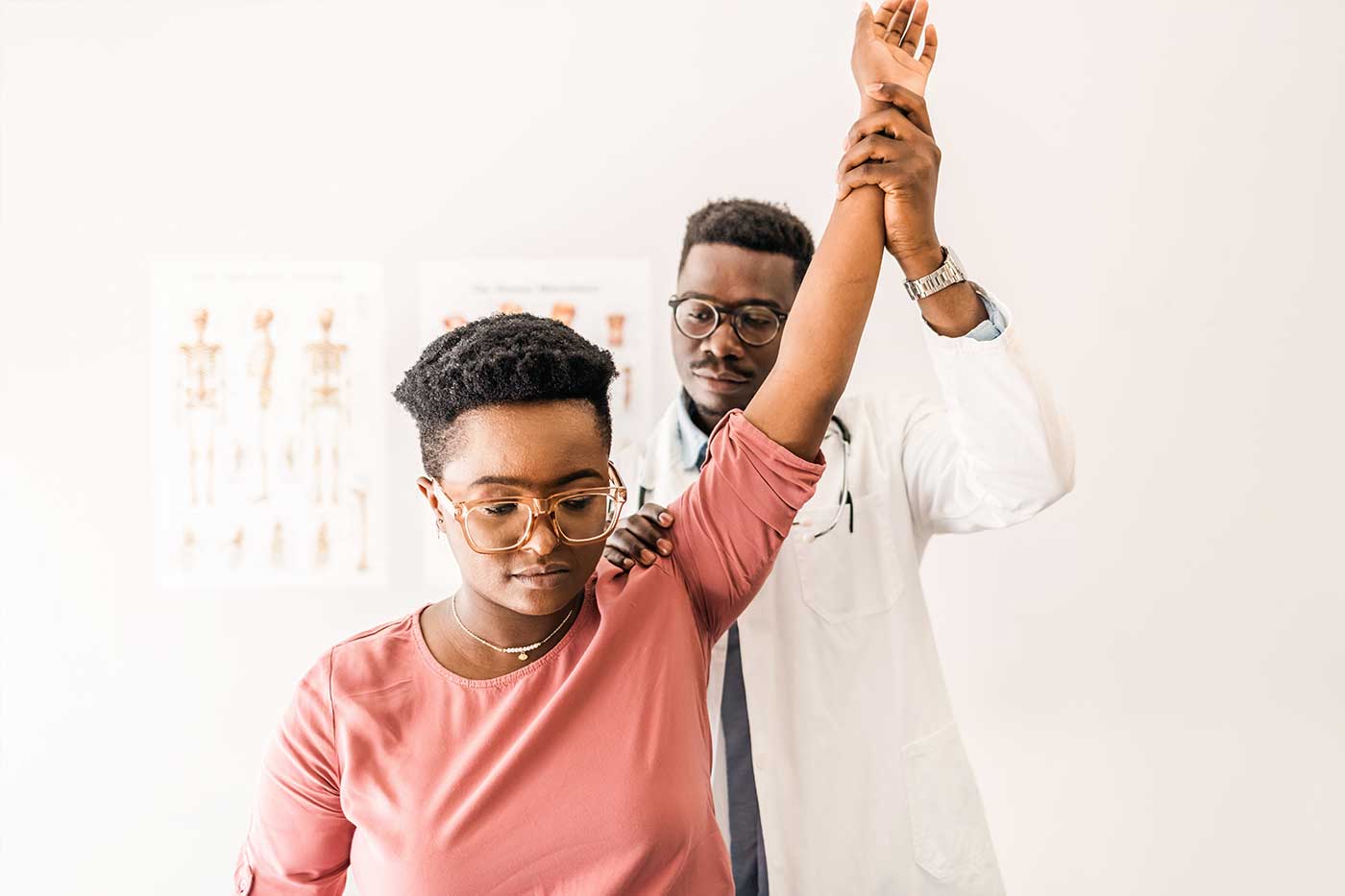When the rotator cuff tears
Produced by:

A tear or injury to the rotator cuff, an important part of your shoulder, can be painful and debilitating.
The rotator cuff is made up of four muscles and their associated tendons that form a covering around the head of the shoulder. Your rotator cuff helps to raise and rotate your arm while keeping your shoulder in its socket.
Rotator cuff tears account for an estimated two million doctor visits each year in the United States alone, according to the American Academy of Orthopedic Surgeons.1 Tears to the rotator cuff are a common cause of shoulder pain and weakness in adults, leading to significant disability.1 Younger persons and seniors can both be affected, though incidence increases with age.
Rotator cuff tears can occur as the result of trauma from a specific injury such as a fall.1 They may also be due to chronic degeneration over a long period of time, often as a result of repetitive physical activity involving the shoulder.1 Tears can be small or large, partial or full, incomplete or complete. The difference between a partial tear and a full tear is whether the tendon has been completely detached from the bone. If only a small part of the tendon is removed, it is considered a full-thickness incomplete tear. If it completely detached, then it is referred to as a full-thickness complete tear.1 Magnetic Resonance Imaging (MRI), or ultrasound is often very helpful in diagnosing rotator cuff tears and their severity.1
Symptoms associated with rotator cuff tears can often improve with rest, physical therapy and anti-inflammatory medications.1 When pain and weakness due to a rotator cuff tear persist (between 6–12 months), you have significant weakness or loss of function or you’ve had an acute injury, surgery may be appropriate.1
Not all tears are the same, so each repair is tailored to the specific needs of an individual patient. Depending on a variety of factors, your doctor may recommend one of the following procedures:
- Traditional open repair (for large or complex tears): A large incision is made to remove the bone spurs or to reconstruct the tendon.2
- Arthroscopic repair, or arthroscopy: During this procedure, a small camera called an arthroscope is inserted into the shoulder, the rotator cuff tear is visualized, and repair is accomplished with the latest high-tech methods.2,3
- Mini-open repair: This procedure involves performing arthroscopy to evaluate and treat any damage and then repair the tendon through a mini open incision.2
Postoperative physical therapy is tailored to each patient as well and progresses in stages, with an initial period of rest, followed by recovery of motion and finally, strengthening of the shoulder.
The goal of rotator cuff surgery is to decrease your pain, improve your function and help you return to the activities you love to do. Not all tears are the same, so not all repairs should be the same either.
If you have shoulder pain, or if you think you may have a rotator cuff tear, contact your provider.
Disclaimer
The information featured in this site is general in nature. The site provides health information designed to complement your personal health management. It does not provide medical advice or health services and is not meant to replace professional advice or imply coverage of specific clinical services or products. The inclusion of links to other web sites does not imply any endorsement of the material on such websites.
- OrthoInfo – American Academy of Orthopedic Surgeons. Rotator Cuff Tears. https://orthoinfo.aaos.org/en/diseases–conditions/rotator-cuff-tears. Revised June 2022. Accessed May 1, 2023.
- Rotator Cuff Tears: Surgical Treatment Options. https://orthoinfo.aaos.org/en/treatment/rotator-cuff-tears-surgical-treatment-options/. Last reviewed June 2022. Accessed May 18, 2023.
- OrthoInfo – American Academy of Orthopaedic Surgeons. Arthroscopy. https://orthoinfo.aaos.org/en/treatment/arthroscopy. Revised May 2021. Accessed May 1, 2023.
Getting to the heart of postural orthostatic tachycardia syndrome (POTS)
Getting to the heart of postural orthostatic tachycardia syndrome (POTS)
Read articleHealthy habits to help stop bladder leaks
Learn how to regain control of your bladder and avoid accidents.
Read articleShould you get tested for seasonal allergies?
Pollen allergies happen in the fall, too. If you’ve got a runny nose and itchy eyes, you may need to see a doctor.
Read article
